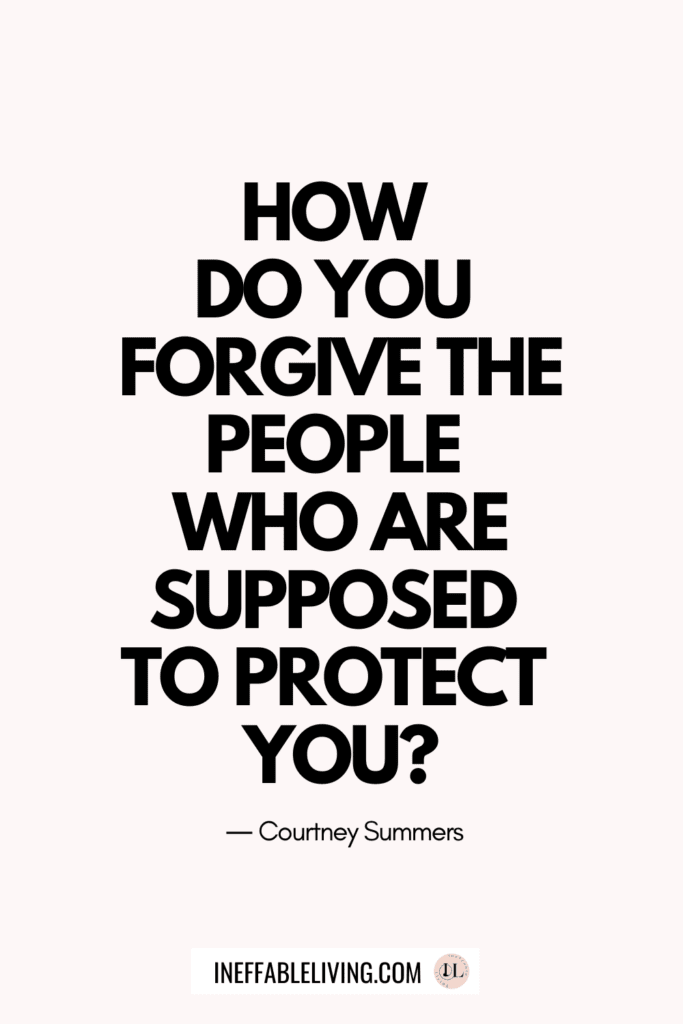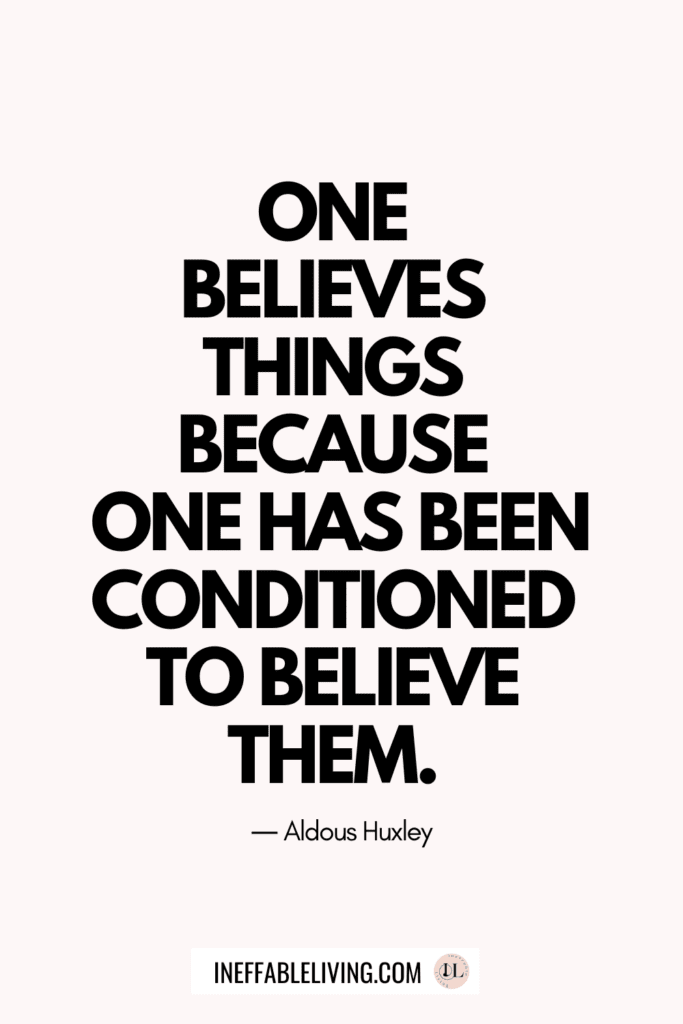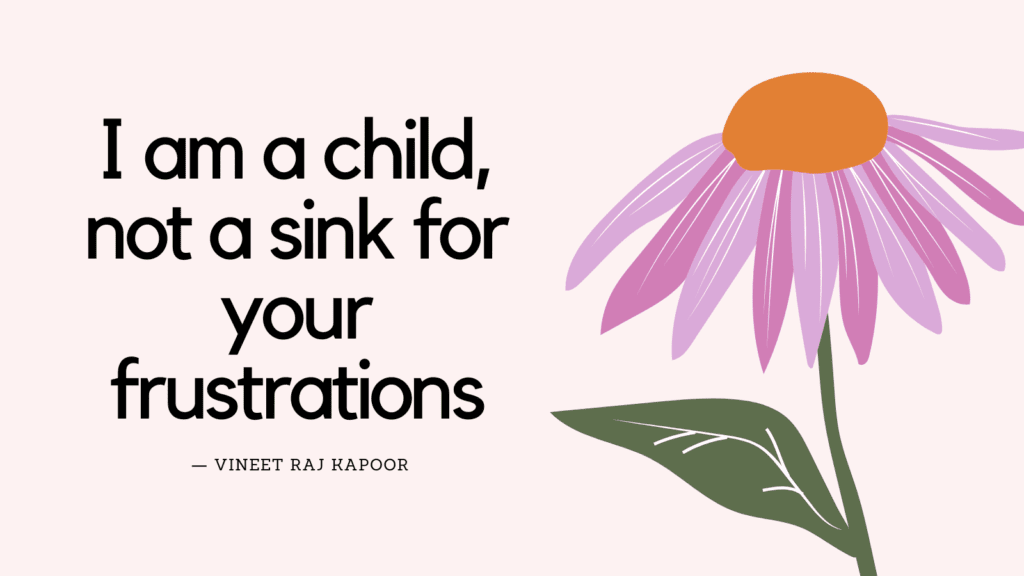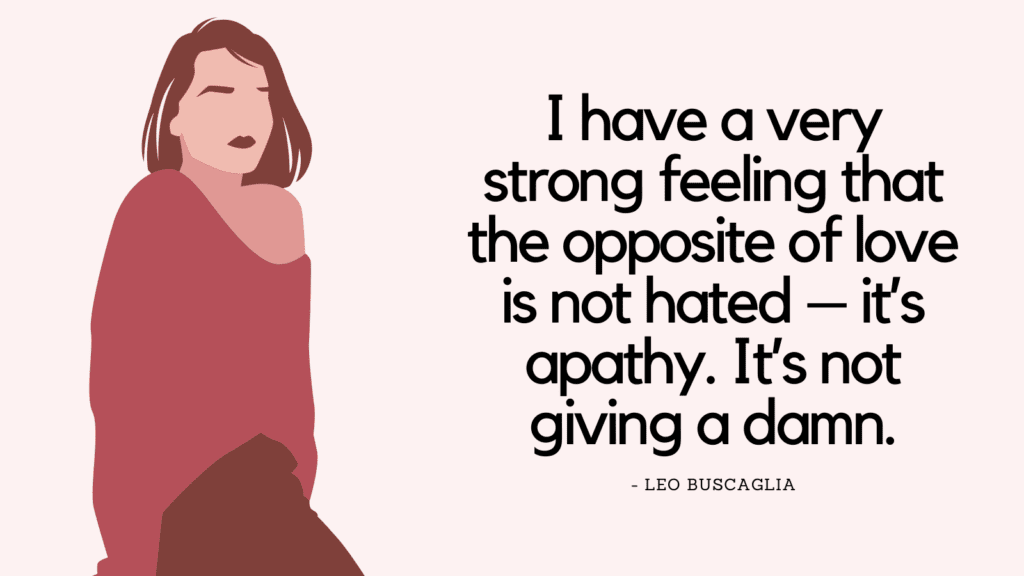This post contains some of the best child abuse quotes.
Child Abuse Quotes
1. “…repeated trauma in childhood forms and deforms the personality. The child trapped in an abusive environment is faced with formidable tasks of adaptation. She must find a way to preserve a sense of trust in people who are untrustworthy, safety in a situation that is unsafe, control in a situation that is terrifyingly unpredictable, power in a situation of helplessness. Unable to care for or protect herself, she must compensate for the failures of adult care and protection with the only means at her disposal, an immature system of psychological defenses.” ― Judith Lewis Herman
2. “Abuse manipulates and twists a child’s natural sense of trust and love. Her innocent feelings are belittled or mocked and she learns to ignore her feelings. She can’t afford to feel the full range of feelings in her body while she’s being abused—pain, outrage, hate, vengeance, confusion, arousal. So she short-circuits them and goes numb. For many children, any expression of feelings, even a single tear, is cause for more severe abuse. Again, the only recourse is to shut down. Feelings go underground.” ― Laura Davis
3. “Abusive parents have inappropriate expectations of their children, with a reversal of dependence needs. Parents treat an abused child as if the child were older than the parents. A parent often turns to the child for reassurance, nurturing, comfort, and protection and expects a loving response.” ― Benjamin James Sadock

4. “As a child abuse and neglect therapist I do battle daily with Christians enamored of the Old Testament phrase “Spare the rod and spoil the child.” No matter how far I stretch my imagination, it does not stretch far enough to include the image of a cool dude like Jesus taking a rod to a kid.” ― Chris Crutcher
Related: Undermothered: How to Mother Yourself Using These Practical 10 Strategies?
5. “Betrayal is too kind a word to describe a situation in which a father says he loves his daughter but claims he must teach her about the horrors of the world in order to make her a stronger person; a situation in which he watches or participates in rituals that make her feel like she is going to die. She experiences pain that is so intense that she cannot think; her head spins so fast she can’t remember who she is or how she got there.” ― Margaret Smith
6. “Child neglect and abuse is a hidden epidemic. The topic is taboo. Surviving abusive relationships, especially in the family unit, is complicated. Oftentimes, victims of child abuse, sexual assaults, domestic violence, and narcissistic abuse don’t report it. During my extensive research, I discovered that most children don’t disclose their sexual abuse, until late in life. On the website, Child USA, they share about delayed disclosure. “Most child victims of sexual assault disclose, if they disclose at all, during adulthood, with a median age of 48 and an average age of 52.” ― Dana Arcuri
7. “Childhood should be carefree, playing in the sun; not living a nightmare in the darkness of the soul.” ― Dave Pelzer
8. “Continually scolding a child by telling them to be a big girl/boy and not cry invalidates them teaches them to distrust others and causes them to bury their feelings.” ― Denise L Lowe
9. “Early relational trauma results from the fact that we are often given more to experience in this life than we can bear to experience consciously. This problem has been around since the beginning of time, but it is especially acute in early childhood where, because of the immaturity of the psyche and/or brain, we are ill-equipped to metabolize our experience. An infant or young child who is abused, violated or seriously neglected by a caretaking adult is overwhelmed by intolerable affects that are impossible for it to metabolize, much less understand or even think about.” ― Donald Kalsched
10. “Healing is comparable to a garden. It needs tended to on a consistent basis. For weeds to be pulled out. The garden needs water and sunshine in effort to grow. Like a lotus flower, you will sprout through the soil, reaching up through the dark water towards the sunlight, stretching to the surface where you will beautifully bloom.” ― Dana Arcuri

Related: Inner Child Wounds Test (+4 Attachment Imagery Exercises To Heal Inner Child Wounds)
11. “How do you forgive the people who are supposed to protect you?” ― Courtney Summers
12. “In order to survive her tumultuous childhood, Mary created another Fat Mary, a companion and consoler, who took away her hurts, fears, and questions and kept them safe until Mary was older and mature enough to process the abuse and neglect she had endured.” ― Maria Nhambu
13. “It took me years, to make sense of my childhood.” ― Efrat Cybulkiewicz
Inner Child Healing Exercises PDF
14. “Just because your mother gave birth to you doesn’t mean they are capable of caring for you. Just because a woman had a child doesn’t necessarily equate to being safe, respectful, or healthy. NOT ALL MOTHERS CAN LOVE.” ― Dana Arcuri
15. “No human being should be maltreated under any circumstances. We are all wonderful creation of God. May we affectionately love one another.” ― Lailah Gifty Akita
16. “One believes things because one has been conditioned to believe them.” ― Aldous Huxley
17. “Our society has a twisted sense of motherhood. They believe that all mothers are kind, tender, gentle, and loving. Unfortunately, not all women who give birth to children are a good parent. Not all women are fit to be mothers.” ― Dana Arcuri
18. “Sexual abuse is also a secret crime, one that usually has no witness. Shame and secrecy keep a child from talking to siblings about the abuse, even if all the children in a family are being sexually assaulted. In contrast, if a child is physically or emotionally abused, the abuse is likely to occur in front of the other children in the family, at least some of the time. The physical and emotional abuse becomes part of the family’s explicit history. Sexual abuse does not.” ― Renee Fredrickson
Related: Top 10 Signs Of Toxic Shame In A Person (+Best 20 Healing Shame Exercises)
19. “Social anxiety results from being around people who are resolutely opposed to who you are.” ― Stefan Molyneux
20. “The fact is, the man who’d begotten me didn’t want me. In his eyes I should never have been born. And perhaps that would’ve been best. As it was, my existence had proven to be nothing more than a nuisance for everyone. I angered my father, brought strife upon my mother, irritated my teachers, and annoyed the other children who were forced to interact with me in school. All by simply being. When you aren’t loved, you aren’t real. Life is cold, like the stone against my palm.” ― Richelle E. Goodrich
21. “The fear of abandonment forced me to comply as a child, but I’m not forced to comply anymore. The key people in my life did reject me for telling the truth about my abuse, but I’m not alone. Even if the consequence for telling the truth is rejection from everyone I know, that’s not the same death threat that it was when I was a child. I’m a self-sufficient adult and abandonment no longer means the end of my life.” ― Christina Enevoldsen
22. “The greater a child’s terror, and the earlier it is experienced, the harder it becomes to develop a strong and healthy sense of self.” ― Nathaniel Branden
23. “The happy family is a myth for many.” ― Carolyn Spring
Related: How To Break Generational Trauma? 5 Steps To Release Trauma & End Self-Sabotage
24. “The women who are being abused stay for the sake of the children, to not break up the family, and what the children go through as a result is worse than any divorce, and damages them far more than if they’d gotten out of the marriage. The statistics on it are terrible, sometimes even including child suicide. The children feel helpless to protect their mothers and don’t know how to handle it. It’s hard enough for the adults involved, the kids are overwhelmed by circumstances to have no control over.” ― Danielle Steel
25. “Their tears should be what they caused while playing and not when been abused.” ― Zara Vote
26. “There are people whose whole life is a punishment. Kids who literally don’t know the difference between right and wrong, people who ‘know not what they do,’ to quote the Master.” ― Patry Francis
27. “Verbal abuse is as damaging as physical abuse, and in some cases, it does even more damage to a child. Insulting names, degrading comments and constant criticism all leave deep emotional scars that hinder feelings of self-worth and personal agency.” ― Susan Forward
28. “This toxic pattern within the broken family system will continue from one generation to the next, until one brave survivor finally ends the cycle of abuse. The dysfunction, bullying, and abuse didn’t start with you, but it most certainly can end with you.” ― Dana Arcuri
Related: Covert Verbal Abuse: What Is It & How To Recover From Verbal Abuse
29. “Two words sum up being the daughter of a narcissistic mother: deep sorrow. It was like a massive boulder sat on my chest. Choking me. Suffocating me. Drowning me. Spinning my life out of control. My memories of growing up to become an adult woman who suffered ritual narcissistic abuse had a common thread: Tears. Drama. And compounded trauma.” ― Dana Arcuri
30. “Narcissistic abuse is cited as being ‘soul murder.’ It not only breaks your heart and crushes your spirit, but it’s directly linked to trauma wounds. Trauma pierces your core essence. It breaks you into dozens of pieces. Your trauma runs deep. Unaware, you may carry it into your adulthood.” ― Dana Arcuri
31. “If we ignore our abuse and trauma, it will continue to reveal itself to us. It may be subtle or it may be intense. Trauma can show up in our sleep. We may battle insomnia and nightmares. We can experience physical pain and emotional distress. We may struggle with anxiety and depression. Or we may suffer hypervigilance, dissociation, and Complex PTSD/PTSD. We may have flashbacks. We may battle triggers. Or we can suddenly be slammed with fight, flight, freeze, or fawn mode. Each of these signs are a normal trauma response. Even if we are unaware that it’s linked to our emotional trauma.” ― Dana Arcuri
32. “Even after the bruises disappear, the scars inside you are still there.”
― J.W. Lynne, The Unknown
33. “Whenever you are faced with darkness… Search for your inner light.”
— Jeneen Miller
34. “I am a child, not a sink for your frustrations” ― Vineet Raj Kapoor
35. “A child that is being abused by its parents doesn’t stop loving its parents, it stops loving itself.” – Unknown
Related: Healing From Emotional Abuse In 12 Practical Steps

How to Heal From Child Abuse?
Healing from child abuse is a deeply personal journey that takes time, courage, and support. While the effects of abuse can linger, it’s possible to rebuild a life filled with safety, connection, and self-worth. Here are practical steps to help you navigate the healing process.
1. Acknowledge What Happened
Recognizing and validating your experiences is a powerful first step. Abuse often involves denial or minimizing the harm, but healing starts with saying to yourself, “What I went through was real, and it mattered.” Journaling can help bring clarity to your emotions and experiences.
2. Seek Professional Help
A therapist who specializes in trauma can guide you through the recovery process. Look for professionals experienced in modalities like Cognitive Behavioral Therapy (CBT), Eye Movement Desensitization and Reprocessing (EMDR), or somatic therapies. Therapy provides a safe space to process pain and learn coping strategies.
3. Build a Support System
Surround yourself with people who uplift and understand you. Trusted friends, family, or support groups for abuse survivors can provide encouragement and help you feel less alone. Online forums or local meetups can also offer a sense of community.
4. Practice Self-Compassion
Abuse can leave deep feelings of shame or guilt. Challenge these feelings by reminding yourself that the abuse was not your fault. Speak kindly to yourself and practice affirmations like, “I deserve love and care,” or “I am not defined by my past.”
5. Set Boundaries
Learning to set and enforce boundaries is essential for healing. This might mean limiting contact with harmful individuals or saying “no” to situations that feel unsafe. Boundaries protect your energy and help you rebuild trust in yourself.
6. Explore Your Emotions Safely
Repressed emotions often surface during healing. Allow yourself to feel anger, sadness, or grief in healthy ways. Activities like journaling, art, or speaking to a trusted friend can help you process these emotions without becoming overwhelmed.
7. Reconnect With Your Body
Child abuse can disconnect you from your physical self. Practices like yoga, mindfulness, or gentle movement can help restore that connection. Pay attention to how your body feels and create routines that promote relaxation and safety.
8. Reframe Negative Beliefs
Abuse often instills harmful beliefs like, “I’m not good enough,” or “I can’t trust anyone.” Work on challenging these beliefs through therapy or affirmations. Replace them with empowering truths, such as “I am worthy of love and respect.”
9. Allow Yourself to Grieve
Grief is a natural part of healing. You may grieve the childhood you didn’t have or the relationships that could have been. Give yourself permission to mourn without judgment—it’s a step toward releasing the pain.
10. Focus on Self-Care
Caring for yourself is a form of reclaiming your worth. Prioritize small acts of kindness toward yourself, like maintaining a balanced diet, engaging in hobbies, or creating a bedtime routine. Self-care signals to your brain that you matter.
11. Consider Trauma-Informed Practices
Engage in activities designed for trauma recovery, such as grounding exercises or breathwork. Techniques like these help regulate your nervous system and create a sense of safety in your body.
12. Be Patient With Yourself
Healing is not linear, and setbacks are normal. Celebrate small victories, like opening up to someone or feeling calmer in situations that once triggered you. Progress, no matter how small, is still progress.
13. Look Toward the Future
Over time, focus on building a life that reflects your values and dreams. Volunteer, learn new skills, or set goals that excite you. Reclaiming your life after abuse means taking steps toward a future where you feel empowered and free.
Final Thoughts
Healing from child abuse is a brave and transformative journey. You don’t have to do it alone—reach out, take small steps, and trust in your capacity to heal. You are stronger than the pain of your past, and a brighter, more fulfilling future is within your reach.



